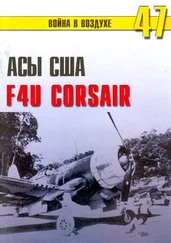Hector looked doubtfully into the wooden bowl he had been handed. It contained a small portion of oily bean soup. It smelled fermented. ‘It can be worse than this?’ he enquired. Bourdon nodded, his mouth full. ‘Bastard contractors provide the Galley Corps with rotten provisions, and the comites serve short measure on the daily rations because they want their galeriens to spend any money they earn in buying extra stores and grog from the comite’s shop. This meal is full measure and decent grub.’
Hector’s guts churned at the smell of the soup, and he realised he needed to relieve himself. ‘How do I get to a latrine?’ he demanded.
‘Over there,’ Bourdon nodded towards the outer rail of the galley. ‘Stick your arse over the side and let go.’
Miserably Hector crawled over his companions as each man on his oar bench shifted so that he could slide his leg chain along the central tether until he had enough slack to reach the edge of the galley. Life in the bagnios of Algiers had never been as vile and degrading as this, he thought, as he defecated over the side of the galley.
He was crawling back into his place in the middle of the bench, when there was another call on the whistle, followed by a subdued muttering among the galeriens. It must have been the signal that gave them permission to talk among themselves. Immediately Bourdon leaned forward, tapped the galerien in front of him on the shoulder, and asked where he came from. When the man replied ‘Paris’, the two of them began to speak together, keeping their voices low and talking so rapidly in city slang that Hector was barely able to follow their conversation though it was obvious that Bourdon was asking questions. Only when the pickpocket eventually sat back straight on the bench beside him was he able to enquire, ‘What did you find out?’
Bourdon looked thoughtful. ‘That man’s a forcat, a convict. Says he ran away to sea as a youngster, got into various scrapes and finished up on a merchant ship sailing out of Lebanon. He signed on thinking that the owner of the vessel was a Christian Greek but when the ship was intercepted by a Maltese galley of the Order of St John and searched, it turned out that the real owner was a Turk and they were carrying cargo for an Egyptian Pasha. He was taken off the merchant ship, brought back to Malta as a prisoner and tried in the Order’s court. The judges found him guilty as a traitor to his country and to his faith, and condemned him to the oar for life. They even put a slave price on him to reward the crew who had captured him. Apparently the owner of St Gerassimus bought him – paid for him right on the courtroom steps – and he’s been on the galley for the past three years. He doesn’t expect ever to get off it unless by death or illness.’
‘So he’s as badly off as we are,’ commented Hector.
Bourdon still looked pensive. ‘And that’s what puzzles me. He says that nearly all the oarsmen on the St Gerassimus are renegades captured or bought from many different countries, plus a number of Turks. Hardly anyone is serving out a set number of years at the oar. They are all lifers, and the last of the volunteer oarsmen left the galley at Malta. He thinks that the galley’s owner wants a permanent crew so that the St Gerassimus becomes the crack galley in the fleet. Our friend claims that the galley is already the best-managed and best-disciplined vessel in the Mediterranean. It seems odd, but he was almost proud of being aboard.’
The comite’s whistle shrilled yet again, and the galerien who had been talking with Bourdon called, ‘Five-minute warning. Better get yourselves ready for the night. Take a leak and spread out your cloaks. The nights can be chilly. No more talking as soon as the lights are out.’
Looking down the galley, Hector saw some oarsmen were assembling small platforms perched on short poles about three feet high. Moments later they had erected little canopies over the platforms so that there were half a dozen smaller tents within the great awning. ‘What are those for?’ he asked. ‘That’s where the comites and the senior argousins sleep,’ answered the galerien. ‘Floating above our heads like in the clouds. Those oarsmen beneath their beds have the “reserved seats”. They wait as servants on the comites, and eat scraps from their food.’
‘What about us? Where do we sleep?’ Hector wondered looking around.
‘Just where you sit,’ came the answer. ‘Take it in turns to stretch out on the banc, or down on the deck. There won’t be room for all five of you, so a couple of you will have to sleep kneeling, with your head on the bench.’
‘There doesn’t seem enough room.’
‘It’s luxury now,’ the galerien assured him. ‘Just wait until you have to share your bench with the handle of your oar.’
Belatedly Hector realised that he had not yet seen any oars on the St Gerassimus. He was wondering where they might be when the whistle blew again and a total silence fell on the galley.

NEXT MORNING he discovered what had happened to the galley’s sweeps. After a meagre breakfast of water and bread the crew of the galley were marched off the St Gerassimus and along the quay to where two small vessels were lying. They were galliots, half-sized galleys used by the Corps as training ships. Neatly laid out on their benches were long oars with scarlet and white blades and shafts. Hector recognised the livery of the St Gerassimus. ‘Crew to divide,’ bellowed the rowing master who had accompanied them. ‘Benches one to twelve on the first galliot; benches thirteen to twenty-six in the second vessel.’ Hector and his companions found their way to the forward benches and were shackled in place when Yakup, armed with a bullwhip, appeared on the gangway above them. ‘You with the GAL on your cheek,’ he said, pointing at Bourdon, ‘show them what to do.’ Bourdon gripped the wooden handgrip pegged to the side of the massive oar shaft which was thick as a man’s thigh. He placed his right foot on the edge of the bench in front of him. ‘Now take a stroke!’ Bourdon struggled to push the loom of the sweep away from him, rose up as if climbing a stair, then fell back with all his weight, tugging on the handgrip. The huge oar did not stir. ‘Again!’ ordered the rowing master. He flicked the bullwhip’s lash across Bourdon’s shoulders. The pickpocket gritted his teeth and repeated his effort, still the oar did not budge. ‘Now you!’ barked the rowing master, pointing at Hector. Hector took hold of the adjacent handgrips and copied Bourdon’s movements. Very slightly the oar handle moved. ‘And you!’ This time it was Dan who joined the effort, and ponderously the massive sweep began to shift. ‘And you!’ The fourth man on the oar bench added his weight, but it was only when the burly odjak, seated farthest inboard, helped the other oarsmen that the heavy sweep began to rise and fall in a ponderous movement. ‘Enough!’ barked the rowing master, turning his attention to the next bench of novice oarsmen. As soon as Yakup was out of earshot, Bourdon hissed, ‘Once the galley starts moving, watch out for the oar handle behind us. It’ll knock our brains out. Here we go!’
The rowing master had finished his instructions and now gave a signal to a comite standing on the poop deck. The comite brought a whistle to his lips and gave a single blast. Every one of the oarsmen swayed forward, still seated on his bench, arms extended, pushing the oar handles in a low arc ahead of them. The whistle sounded again, and the oarsmen stood up all together, raising their hands so that the blades of the oars dipped into the sea. A fourth blast, and the oarsmen flung themselves backward, dragging the blades through the water as they fell back on the leather-padded benches. Scarcely had they regained their seats than the whistle was signalling them to repeat the movement, and a drummer alongside the comite struck the first beat of a slow steady tempo as the galliot gathered way.
Читать дальше









